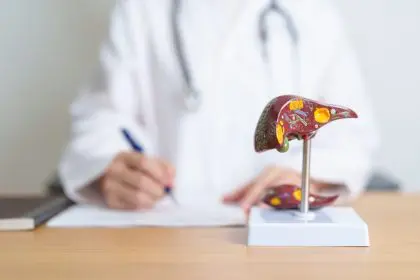Skipping meals might seem like a harmless habit or even a shortcut to weight loss, but the damage it can do to your liver is far more serious than most people realize. The liver, one of the most vital organs in the human body, silently regulates everything from detoxification to metabolism. However, the effects of erratic eating patterns, especially prolonged fasting or skipping meals, can silently chip away at its resilience.
This article uncovers the critical relationship between irregular eating and liver health, offering insights backed by medical research and cautionary real-life consequences that deserve your attention.
Understanding your liver’s daily role
Before understanding how meal skipping affects the liver, it’s important to grasp what this organ actually does. The liver is responsible for processing nutrients absorbed from the digestive system, filtering toxins from the bloodstream, regulating blood sugar levels, producing bile to digest fats, storing essential vitamins and minerals and managing cholesterol levels.
All of these processes are deeply influenced by a person’s eating habits. A steady intake of food allows the liver to maintain balance. When meals are skipped, this natural rhythm is thrown off — and the consequences aren’t just temporary.
How skipping meals impacts liver function
Disrupts blood sugar regulation
When you skip a meal, your body still needs energy. In the absence of food, the liver compensates by releasing stored glycogen, converting it into glucose. While this mechanism is beneficial in the short term, chronic meal skipping forces the liver into overdrive. Over time, the liver’s ability to regulate glucose becomes compromised, increasing the risk of insulin resistance and potentially contributing to type 2 diabetes.
Triggers fat accumulation
One of the more insidious outcomes of irregular eating patterns is fat buildup in the liver. Known as nonalcoholic fatty liver disease (NAFLD), this condition has been linked to prolonged fasting and disordered eating behaviors. When the body is deprived of food, it may begin storing more fat in the liver once eating resumes, especially if large meals are consumed to compensate. This overcompensation stresses the liver, leading to inflammation and scarring over time.
Increases oxidative stress and inflammation
Meal skipping has been shown to elevate markers of oxidative stress. Oxidative stress occurs when the body is overwhelmed by free radicals and cannot neutralize them effectively. For the liver, this leads to cellular damage, inflammation and impaired function. Chronic inflammation in the liver is a precursor to more serious conditions, including liver fibrosis and cirrhosis.
Weakens detoxification functions
Your liver’s ability to detoxify your blood isn’t just about alcohol or drugs — it also includes environmental toxins, metabolic waste and byproducts of digestion. When the liver is nutrient-deprived due to skipped meals, its detoxification processes slow down. This can lead to a buildup of harmful substances in the bloodstream, affecting everything from mood to skin clarity and immune function.
The link to liver disease
Studies have consistently shown that irregular meal patterns are associated with a higher risk of liver disease. In one study published in the Journal of Clinical Endocrinology and Metabolism, researchers found that individuals who regularly skipped breakfast had increased markers of liver fat and insulin resistance. Even if these individuals did not consume excessive calories, the mere inconsistency of food intake posed a threat.
Moreover, intermittent fasting, often popularized as a health trend, can be a double-edged sword. While controlled time-restricted eating may have some benefits, unsupervised meal skipping without balance or medical oversight can backfire and increase stress on liver cells.
The psychological factor
Chronic stress, anxiety about food or dieting fads can push individuals to skip meals. Unfortunately, psychological stress further harms the liver. The stress hormone cortisol, elevated during prolonged fasting and anxiety, promotes fat storage and inflammation in the liver.
In this way, skipping meals becomes a two-pronged attack — physiologically and emotionally — on liver health. The emotional burden adds another layer of damage, often going unnoticed until symptoms appear or lab results raise concern.
Warning signs of liver distress
Skipping meals doesn’t usually trigger instant liver failure, but the damage accumulates silently. Watch for these symptoms:
- Chronic fatigue even with enough sleep
- Abdominal discomfort or bloating
- Unexplained weight fluctuations
- Dark urine or pale stools
- Yellowing of the skin or eyes (jaundice)
- Poor concentration or memory fog
If these symptoms become persistent, it’s time to get liver function tests and discuss dietary habits with a healthcare professional.
A real-life cautionary tale
Consider the story of Vanessa, a 32-year-old marketing manager who began skipping breakfast and lunch in an effort to slim down for her wedding. At first, the pounds melted away. But within six months, she began experiencing dizziness, fatigue and bloating. Blood tests revealed elevated liver enzymes and signs of early NAFLD. With the help of a registered dietitian and consistent meal planning, she reversed some of the damage — but the lesson came at a cost: a stark realization of how easily a liver can be strained without warning.
What your liver needs to thrive
Your liver thrives on a balanced diet. Regular meals that include lean protein, whole grains, fiber and healthy fats help support liver function. Crucial nutrients such as vitamin E, vitamin C, omega-3 fatty acids, B vitamins, zinc and selenium are all needed for detoxification, tissue repair and metabolic regulation. Skipping meals robs the liver of these essential tools.
Healthy eating patterns for liver support
To protect and heal your liver, consider these habits:
Eat every 4-5 hours: This gives the liver a steady supply of nutrients and prevents energy crashes.
Prioritize breakfast: Studies show that skipping breakfast is most closely linked with liver damage.
Avoid large, irregular meals: They overwhelm the liver. Instead, opt for portion-controlled, consistent meals.
Stay hydrated: The liver depends on water to flush out toxins. Skipping meals often coincides with low water intake.
Include antioxidant-rich foods: Berries, leafy greens and nuts can reduce inflammation and oxidative stress.
Limit processed sugar and saturated fats: These contribute to fat buildup and strain liver metabolism.
A growing concern among young people
Young adults and teens are increasingly adopting erratic eating patterns due to time constraints, stress or misinformation from social media influencers. This demographic often believes skipping meals boosts productivity or appearance. Unfortunately, their developing organs — particularly the liver — are more vulnerable to damage. Studies suggest that early-onset liver issues are on the rise, linked not just to substance use or obesity, but also to inconsistent eating.
Health educators and families need to discuss the long-term impact of skipping meals not just on energy, but on organ health.
The silent suffering deserves attention
Unlike other organs that signal distress with sharp pains or visible signs, the liver’s cries for help are muffled until the damage is advanced. Skipping meals may appear benign, even virtuous in the eyes of diet culture, but the liver pays the price in silence.
This isn’t about scaring people into rigid meal planning. It’s about education — understanding that nourishing your body regularly is one of the simplest, most effective ways to protect your liver for decades to come.
Feed your liver, protect your health
The next time you’re tempted to skip a meal because you’re busy or chasing a goal on the scale, remember what your liver endures in your absence. It doesn’t rest. It doesn’t pause. It adapts — but at a cost.
A well-fed liver is a functioning liver. And a functioning liver is the quiet hero behind every moment of your health.

















